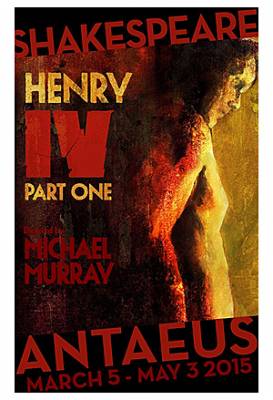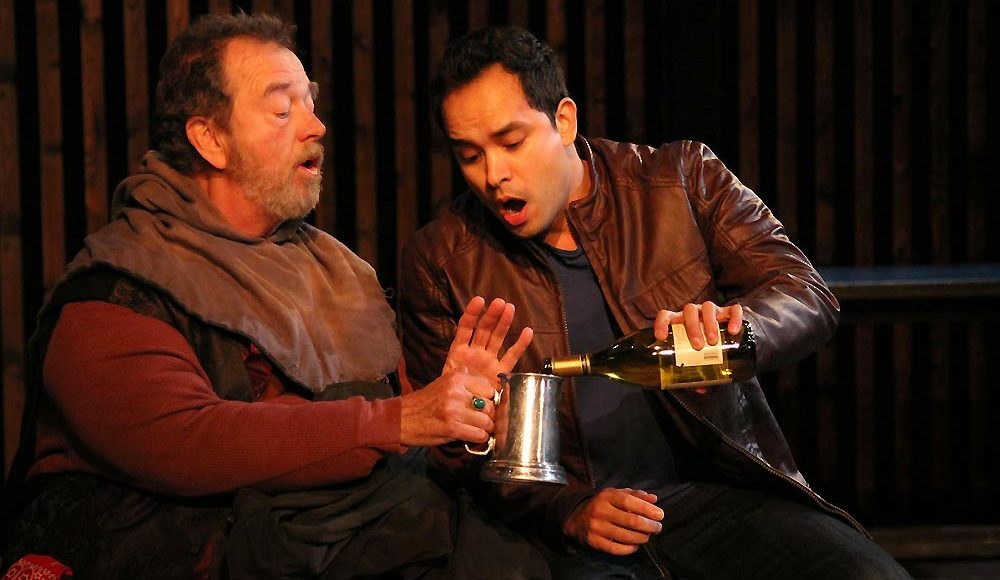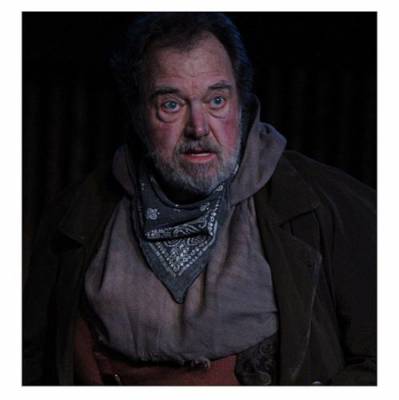I love Shakespeare.
Straight up. If I could cook him down I’d probably be mainlining the Bard.
Any Shakespeare junkie has a major Jonez for the Henry plays.
Richard II, Henry IV Parts I and II and Henry V taken together are an Elizabethan House of Cards only with sword play.*
It’s ironic, that the least successful, play-wise, of the five is the most produced. And before you start typing out your comments about what a great play Henry V is, and “didn’t I see Kenneth Branagh?,” let me qualify that remark by pointing out Henry V is the only one of the five where the History surmounts the drama.
Gone is Hal, the young man trying desperately to find his place in life and to please a harshly critical father. In his place we have Henry V, this great national icon of the British, this myth, no longer Hal, and hardly a man.
 Which points to the constant motif that runs throughout Shakespeare’s works. If the child escapes the shadow of the father, whether that “shadow” is expressed in the appearance of a ghost, his wish of matrimonial partners, or even a paternal resemblance then the play is a comedy: A Midsummer Night’s Dream, The Taming of the Shrew, Measure for Measure, The Tempest.
Which points to the constant motif that runs throughout Shakespeare’s works. If the child escapes the shadow of the father, whether that “shadow” is expressed in the appearance of a ghost, his wish of matrimonial partners, or even a paternal resemblance then the play is a comedy: A Midsummer Night’s Dream, The Taming of the Shrew, Measure for Measure, The Tempest.
When, however, the child is unable to escape the father’s influence then the play is a tragedy: Othello, Romeo and Juliet, Julius Caesar (read Plutarch for the father reference), and of course Hamlet.
The two Henry IV’s and Henry V fit this pattern perfectly, with the two parts of Henry IV essentially being one long ten act play.
It’s annoying that the nuisances of the two parts are best revealed and their merits most fully appreciated when taken in tandem. While the power of the three combined plays is most potent in showing what Hal sacrifices in becoming Henry V.
Gone are the delightful scenes of Hal’s youthfulness, to be replaced by scenes that show the unsightly side of real politics.
Like Falstaff we can all love Prince Hal. Nobody can Love King Henry the Fifth.
The fine, craftsman production of Henry IV, Part One by the Antaeus Theatre Company has one wishing they would have done the whole series.
Performed on a bare, wooden stage under the sturdy hand of director Michael Murray, this is a slick, accessible staging which, while not rising to lofty heights as a whole, certainly has both moments and performances that take flight.
Shakespeare was always providing counterpoints in his plays, and in the two Henry IV’s he has a field day.
Young Prince Hal’s boisterous antics with Falstaff and his scalawags at the Boar’s Head Tavern are counterpointed against his father’s, King Henry IV, struggles in court with forces rising up to threaten his reign.
And within this you have the mirrored images of Hal\Prince Hal, Hal\Hotspurs, Henry IV\Falstaff.
In the Antaeus’s staging you can see glimpses of some weakness in casting, but those weaknesses are covered over nicely by the stronger overall ensemble work and the skills of Murray.
As King and son, James Sutorius and Ramón de Ocampo work well. Daniel Bess quivers some as the strong headed Hotspur, yet manages to infuse the character with the needed fire.
Bo Foxwoth brings a good bit of dimension to Worcester and Joe Hulser fills the bill nicely as Glendower.
But the heart and soul of the play is Falstaff. Here is the shoal where any production sails or sinks, and in Gregory Itzin the Antaeus has a seaworthy vessel.
Itzin fills the stage with all of the wit, vice and humanity of Falstaff, and manages to lift the production above just a solid, craftsman one to something more.
And while there is no reason one shouldn’t go to see this production, Itzin’s performance definitely provides a very strong reason one should.
(Be aware the Antaeus double casts each production, this review is of the The Rogues production only.)
• “Richard III” served as the inspiration for the original BBC series.
Henry IV, Part One by William Shakespeare
Antaeus Theatre
5112 Lankershim Blvd.
North Hollywood, CA 91601
8p.m., Thursdays thru Sundays – from now to May 3, 2015
For more information visit: www.antaeus.org
Phone: 818 506 5436






